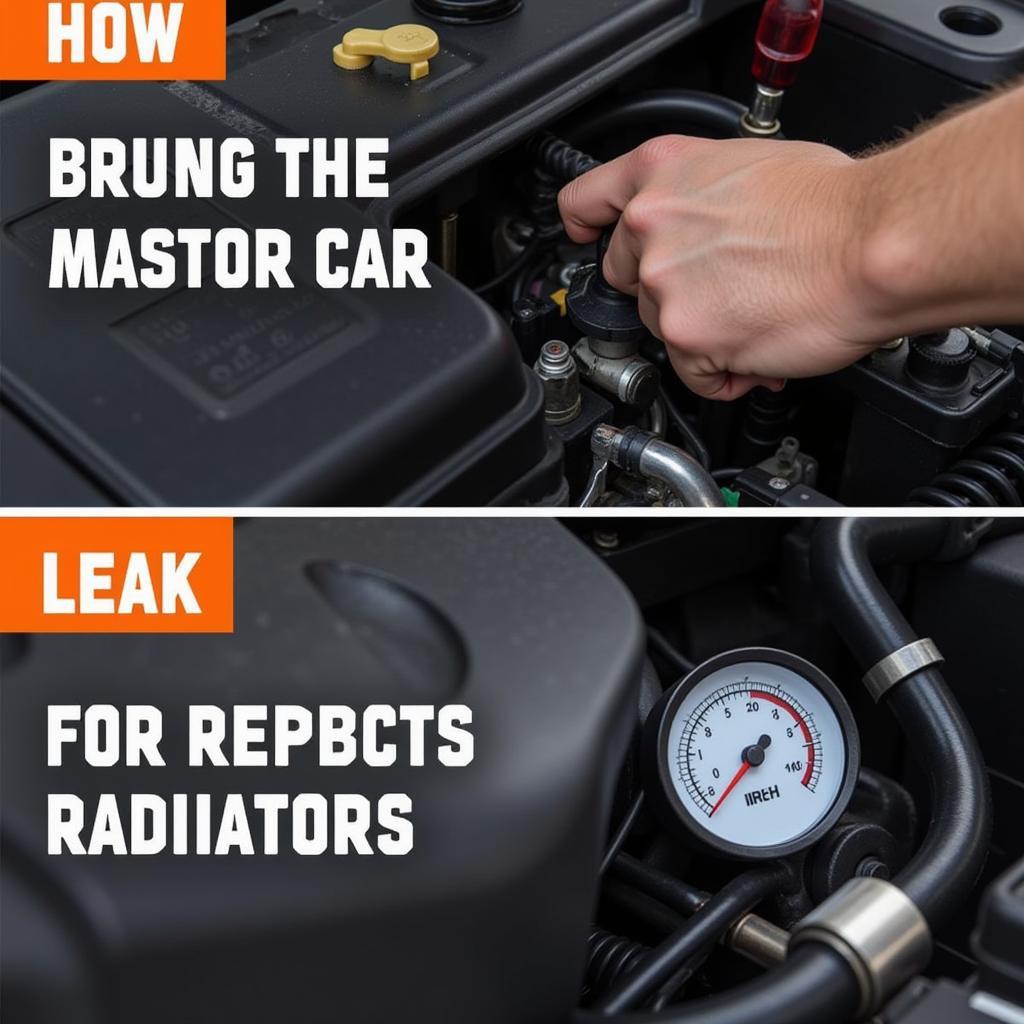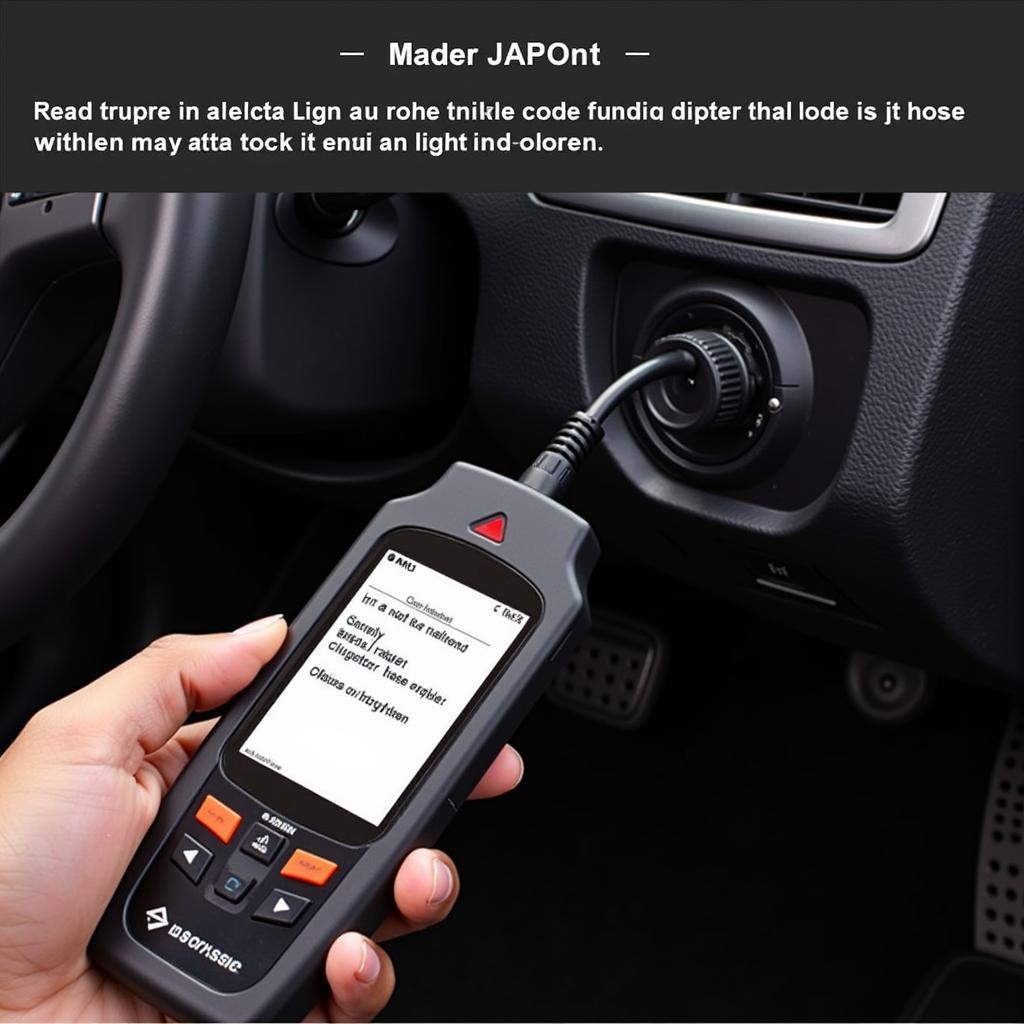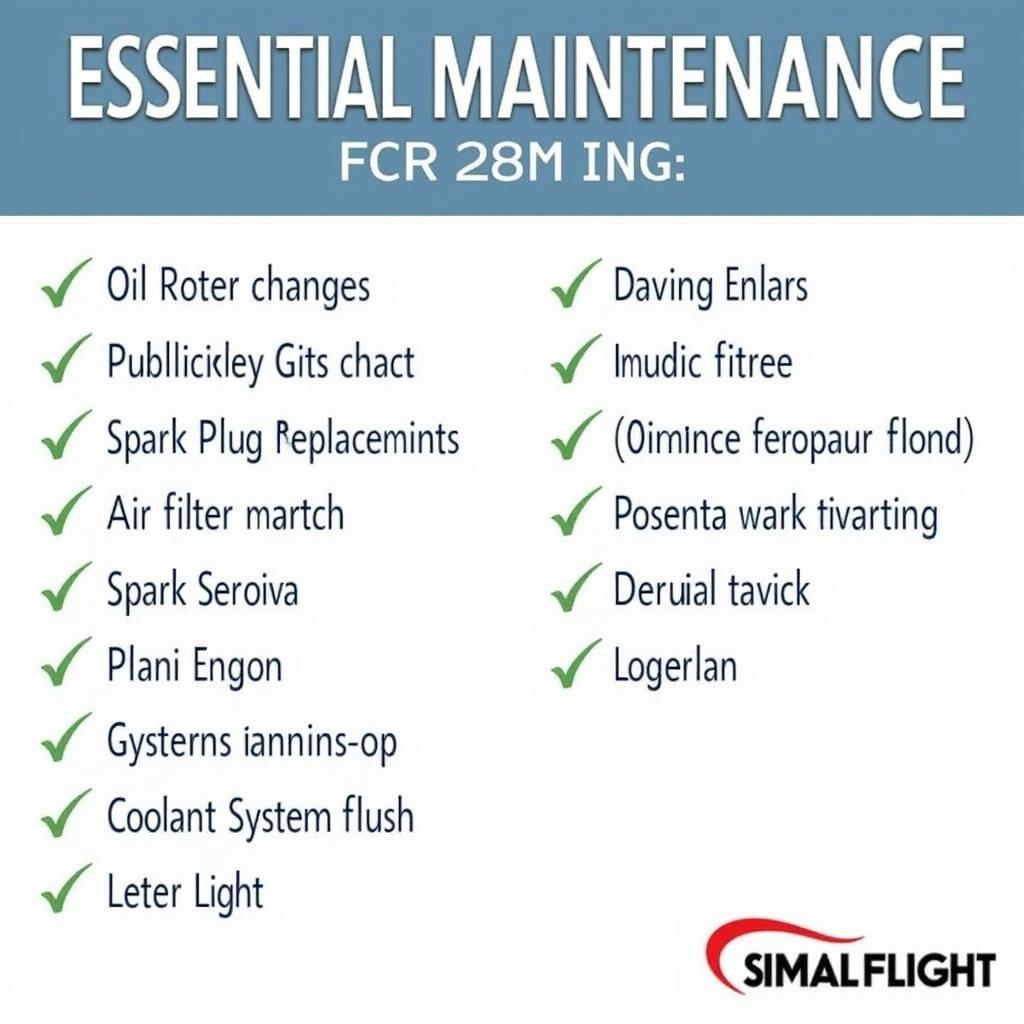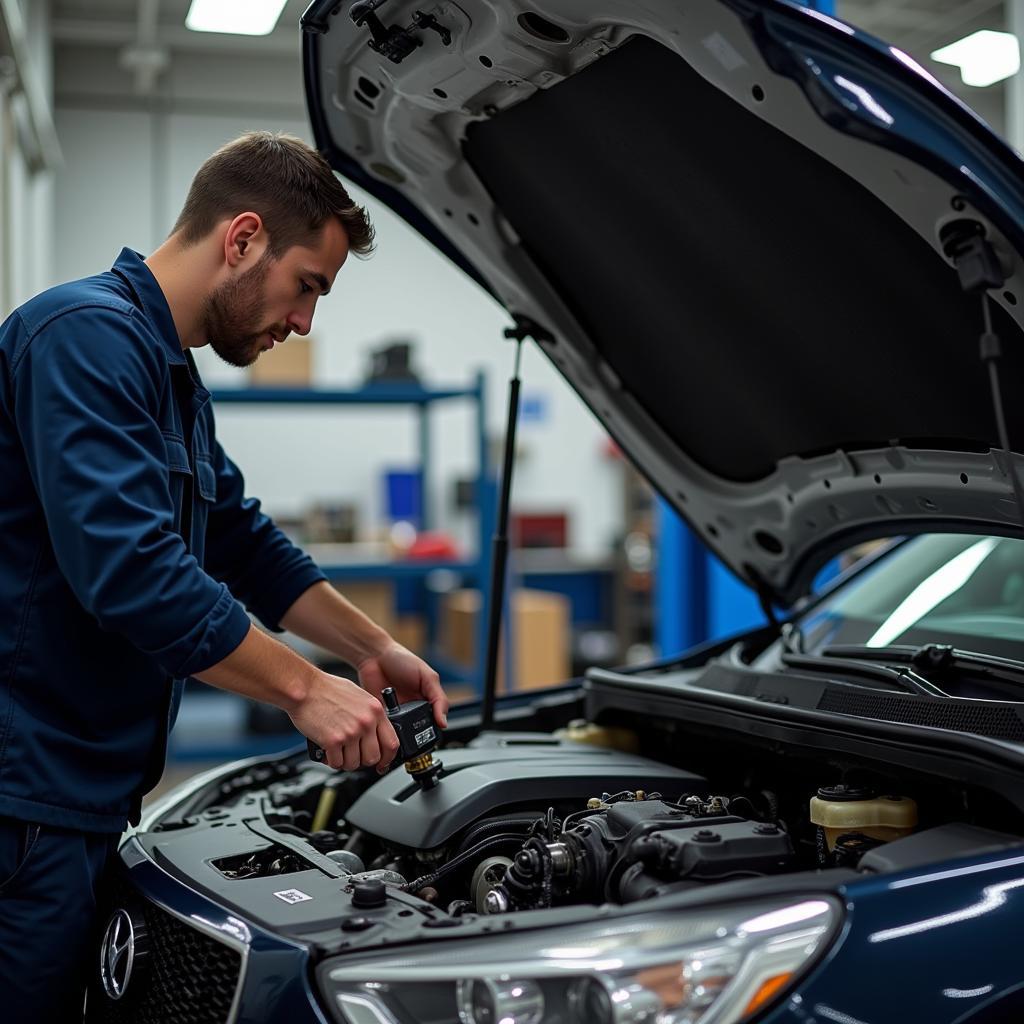Car engine problems can be a frustrating experience, leaving you stranded or facing expensive repairs. Understanding how to diagnose and potentially fix some of these issues yourself can save you time and money. This guide will provide you with practical advice and steps to troubleshoot and address common car engine problems.
Common Car Engine Problems and Their Solutions
Identifying the root cause of an engine problem is the first step towards fixing it. Some problems are straightforward, while others require professional help. Let’s dive into some common issues and how to tackle them.
Rough Idling
A rough idle, where the engine vibrates excessively while stationary, can be caused by several factors. Dirty spark plugs, clogged fuel injectors, or a vacuum leak are common culprits. Checking and replacing spark plugs is a relatively easy DIY task. You can also try using a fuel injector cleaner. However, diagnosing a vacuum leak can be more complex and might require specialized tools.
Overheating
Overheating is a serious issue that can cause significant engine damage. A low coolant level, a faulty thermostat, or a malfunctioning radiator fan can lead to overheating. First, check the coolant level and top it up if necessary. If the problem persists, it’s essential to have the cooling system inspected by a professional.
Loss of Power
A noticeable decrease in engine power can be caused by a variety of issues, ranging from a clogged air filter to more serious problems like a failing fuel pump or a worn-out catalytic converter. Start with the simple checks, like inspecting and replacing the air filter. If the issue remains, further diagnosis is needed.
 Car Engine Overheating Diagnosis: Checking Coolant Levels and Radiator
Car Engine Overheating Diagnosis: Checking Coolant Levels and Radiator
Unusual Noises
Knocking, ticking, or hissing sounds coming from the engine are often signs of trouble. A knocking sound can indicate worn bearings or other internal engine damage. Ticking can be caused by low oil pressure or faulty lifters. Hissing sounds might suggest a vacuum leak or an exhaust leak. Identifying the source of these noises is crucial for determining the appropriate repair.
Check Engine Light
The dreaded check engine light can illuminate for a multitude of reasons. It could be anything from a loose gas cap to a serious engine malfunction. Using an OBD-II scanner can help you identify the specific trouble code triggering the light, which will guide you towards the problem area. If you’re unsure how to interpret the codes, consult a mechanic.
 Check Engine Light Diagnosis with OBD2 Scanner
Check Engine Light Diagnosis with OBD2 Scanner
Poor Fuel Economy
A sudden drop in fuel economy can be caused by several factors, such as a clogged air filter, underinflated tires, a faulty oxygen sensor, or even driving habits. Checking tire pressure and replacing the air filter are simple steps you can take. If the problem persists, a mechanic can diagnose more complex issues like sensor malfunctions.
Preventative Maintenance: Key to a Healthy Engine
Regular maintenance is crucial for preventing car engine problems. Following a regular maintenance schedule can significantly extend the life of your engine and save you money on repairs in the long run. This includes regular oil changes, checking and replacing spark plugs, inspecting air and fuel filters, and having the cooling system flushed. Just like car engine problems car jittering, many problems can be avoided with proper upkeep.
 Car Engine Preventative Maintenance Checklist
Car Engine Preventative Maintenance Checklist
Expert Insights
John Smith, a seasoned automotive engineer, emphasizes, “Regular oil changes are the lifeblood of your engine. Clean oil keeps the engine lubricated and prevents premature wear.” He further adds, “Don’t neglect your air filter. A clogged air filter restricts airflow to the engine, leading to reduced performance and fuel economy.” Similarly, issues relating to cars with engine problems often stem from neglecting basic maintenance.
Conclusion
Understanding How To Fix Car Engine Problems can empower you to address minor issues and save money on repairs. While some problems require professional expertise, knowing the basics can help you diagnose the problem and make informed decisions. Don’t forget that addressing issues promptly can prevent further damage and keep your car running smoothly. For those with specific engine problems, resources like cars with b58 engine problems can offer targeted information. For further assistance and professional support, connect with us at AutoTipPro at +1 (641) 206-8880 or visit our office at 500 N St Mary’s St, San Antonio, TX 78205, United States.
 Professional Car Engine Repair Service
Professional Car Engine Repair Service
Similar to discussions about common car clutch problems, understanding the underlying mechanics can help you troubleshoot effectively. For a broader understanding of automotive issues, exploring synonyms related to car problem synonym can broaden your vocabulary and improve your search for solutions.
FAQ
-
What is the most common cause of engine overheating? Low coolant levels are a frequent cause of overheating.
-
How often should I change my engine oil? Refer to your car’s owner’s manual for the recommended oil change interval, typically every 5,000-7,500 miles.
-
What does a knocking sound in the engine indicate? Knocking can be a sign of worn bearings or other internal engine damage.
-
How can I check my car’s trouble codes? Use an OBD-II scanner to read the trouble codes stored in the car’s computer.
-
What can cause a sudden drop in fuel economy? Factors like a clogged air filter, underinflated tires, or a faulty oxygen sensor can contribute to reduced fuel economy.
-
Why is my car idling roughly? Possible causes include dirty spark plugs, clogged fuel injectors, or a vacuum leak.
-
What should I do if my check engine light comes on? Use an OBD-II scanner to identify the trouble code and consult a mechanic if needed.





Leave a Reply